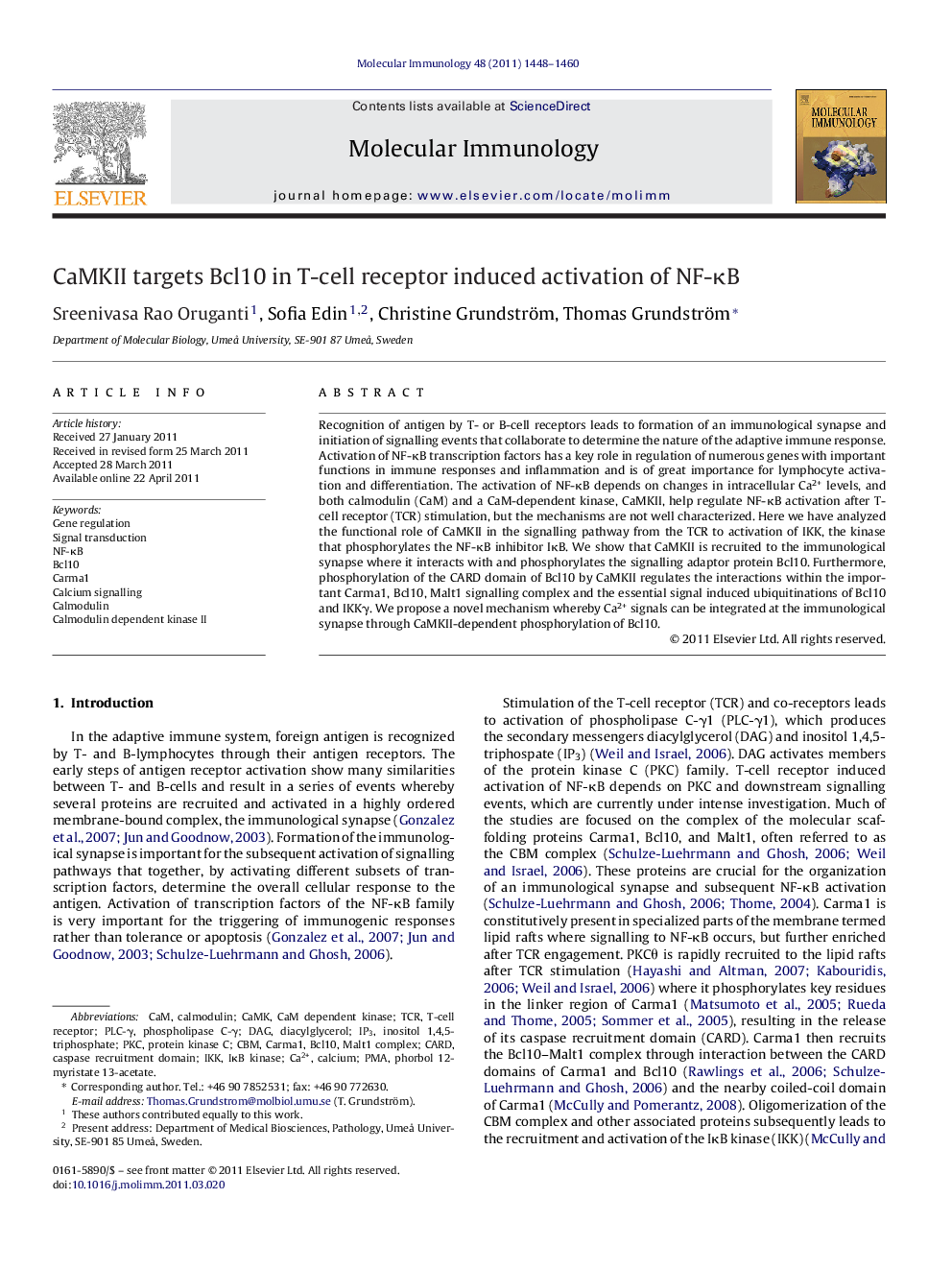| Article ID | Journal | Published Year | Pages | File Type |
|---|---|---|---|---|
| 2831232 | Molecular Immunology | 2011 | 13 Pages |
Recognition of antigen by T- or B-cell receptors leads to formation of an immunological synapse and initiation of signalling events that collaborate to determine the nature of the adaptive immune response. Activation of NF-κB transcription factors has a key role in regulation of numerous genes with important functions in immune responses and inflammation and is of great importance for lymphocyte activation and differentiation. The activation of NF-κB depends on changes in intracellular Ca2+ levels, and both calmodulin (CaM) and a CaM-dependent kinase, CaMKII, help regulate NF-κB activation after T-cell receptor (TCR) stimulation, but the mechanisms are not well characterized. Here we have analyzed the functional role of CaMKII in the signalling pathway from the TCR to activation of IKK, the kinase that phosphorylates the NF-κB inhibitor IκB. We show that CaMKII is recruited to the immunological synapse where it interacts with and phosphorylates the signalling adaptor protein Bcl10. Furthermore, phosphorylation of the CARD domain of Bcl10 by CaMKII regulates the interactions within the important Carma1, Bcl10, Malt1 signalling complex and the essential signal induced ubiquitinations of Bcl10 and IKKγ. We propose a novel mechanism whereby Ca2+ signals can be integrated at the immunological synapse through CaMKII-dependent phosphorylation of Bcl10.
